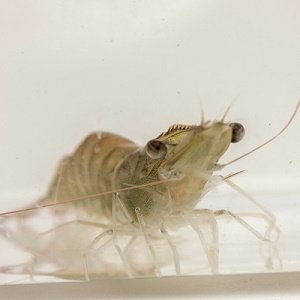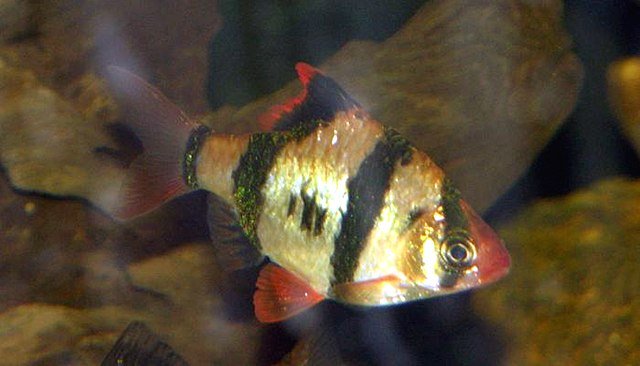Philippines.- A fisheries research found that the probiotic Bacillus strain containing poly-beta hydroxybutyrate (PHB) can be a potential immunostimulant or can improve the immune system of giant tiger shrimp (Penaeus monodon).
Black or giant tiger shrimp is considered as one of the most economically important crustacean species in the country for aquaculture. However, shrimp farmers have difficulty sustaining this type of livelihood as diseases such as white spot syndrome virus and Vibrio spp. affect this species. Thus, it is important for shrimp farmers to manage the health of their shrimps by enhancing their immunity.
This concern was addressed by the study titled, A Probiotic Bacillus Strain Containing Amorphous Poly-beta Hydroxybutyrate (PHB) Stimulates the Innate Immune Response of Penaeus monodon Postlarvae conducted by Dr. Joseph Leopoldo Q. Laranja, Dr. Edgar C. Amar and Ms. Mary Joy Geaga of the Southeast Asian Fisheries Development Center Aquaculture Department (SEAFDEC-AQD), as well as Mr. Yufeng Niu, Mr. Peter De Schryver, and Prof. Peter Bossier of the Laboratory of Aquaculture and Artemia Reference Center, Ghent University, Belgium.
Researchers cultured and fed shrimp postlarvae with Artemia nauplii or brine shrimp enriched with Bacillus sp. JL47. Shrimps that did not receive JL47 enrichment were used as control.
After 15 days of feeding, researchers immersed the pathogen, Vibrio campbellii to infect the shrimps. V. campbellii is a pathogen that affects the postlarval stages of giant tiger shrimp. Within nine hours and 12 hours, the prophenoloxidase (proPO) activation system of the shrimp enriched with Bacillus sp. JL47 up-regulated or increased. ProPO activation system or melanisation is the most important immune mechanism in many invertebrates.
Moreover, shrimp enriched with Bacillus sp. JL47 were observed to have increased transglutaminase (TGase) and heat shock protein 70 (Hsp70). TGase is involved in blood clotting, which is important in preventing the loss of body fluid and invasion of pathogens in shrimp. On the other hand, Hsp70 protects the cells from stress. Based on experimental models in vitro and in vivo, Hsp70 was found to facilitate immune responses against many diseases.
The study also found that even before the Vibrio challenge, proPO and TGase genes were significantly up-regulated in shrimp enriched with Bacillus sp. JL47 compared with the control.
Researchers found that PHB-accumulating Bacillus sp. JL47 in shrimp can stimulate the innate immune related genes of the shrimp, particularly proPO and TGase genes.
Stay Always Informed
Join our communities to instantly receive the most important news, reports, and analysis from the aquaculture industry.
This study is one of the finalists of the Dr. Elvira O. Tan Award, which is spearheaded by the Philippine Council for Agriculture, Aquatic and Natural Resources Research and Development of the Department of Science and Technology (DOST-PCAARRD).
PCAARRD will celebrate its seventh year anniversary on June 22, 2018 at the Philippine International Convention Center (PICC), Pasay City, where it will recognize the effort of its partners.
Source: DOST-PCAARRD S&T Media Services
Editor at the digital magazine AquaHoy. He holds a degree in Aquaculture Biology from the National University of Santa (UNS) and a Master’s degree in Science and Innovation Management from the Polytechnic University of Valencia, with postgraduate diplomas in Business Innovation and Innovation Management. He possesses extensive experience in the aquaculture and fisheries sector, having led the Fisheries Innovation Unit of the National Program for Innovation in Fisheries and Aquaculture (PNIPA). He has served as a senior consultant in technology watch, an innovation project formulator and advisor, and a lecturer at UNS. He is a member of the Peruvian College of Biologists and was recognized by the World Aquaculture Society (WAS) in 2016 for his contribution to aquaculture.







